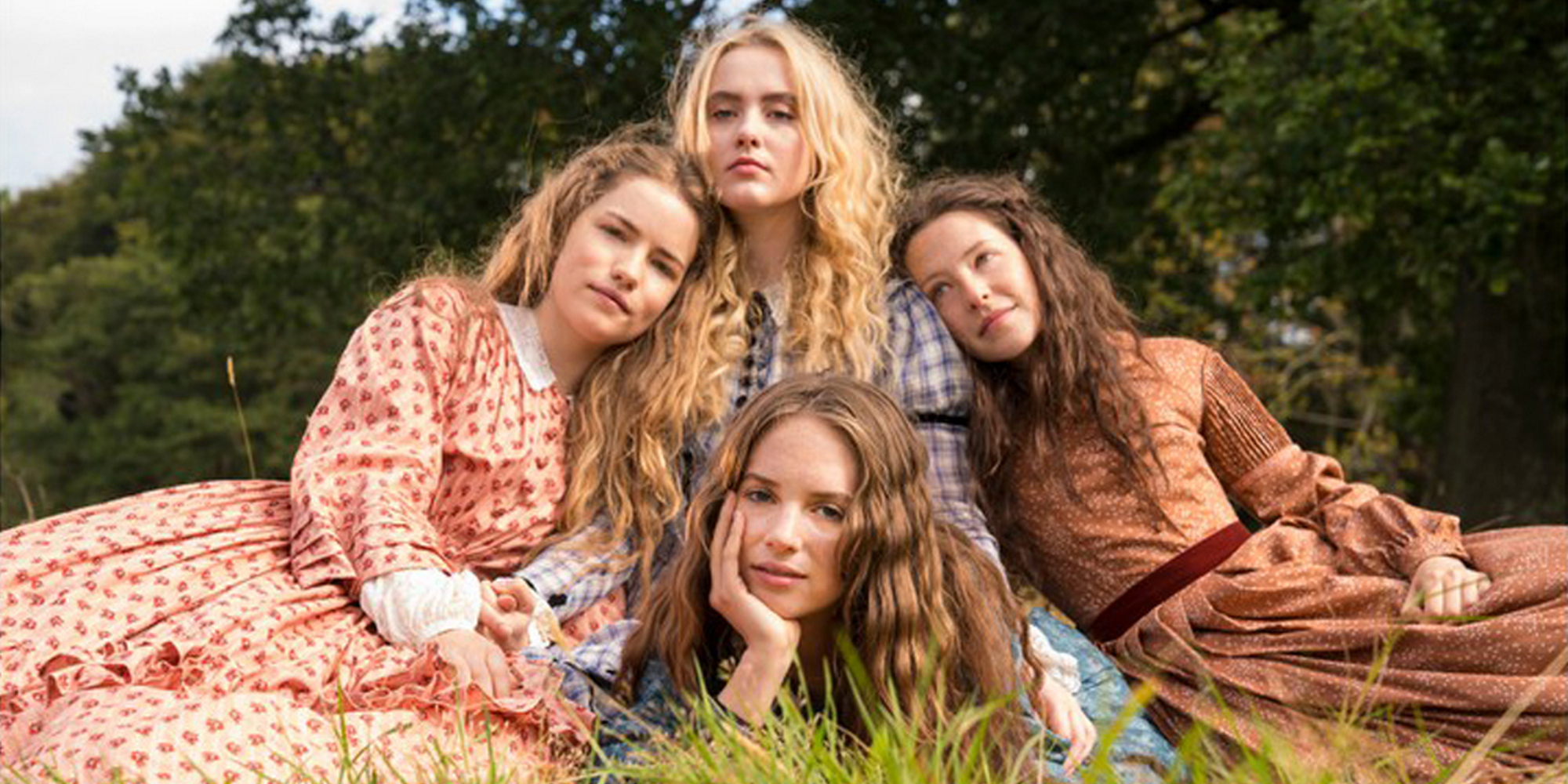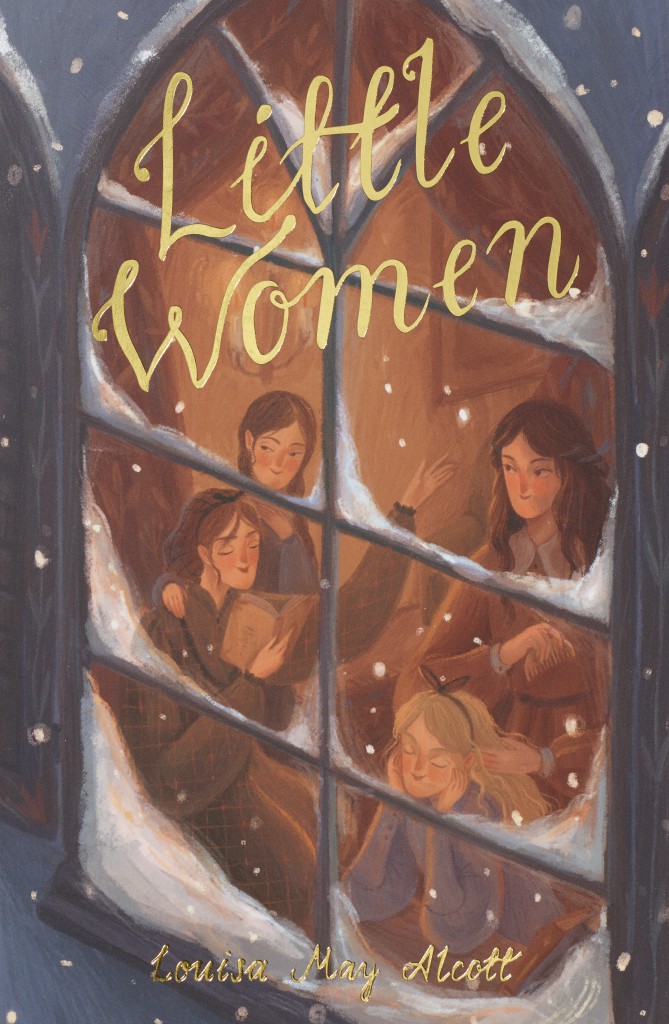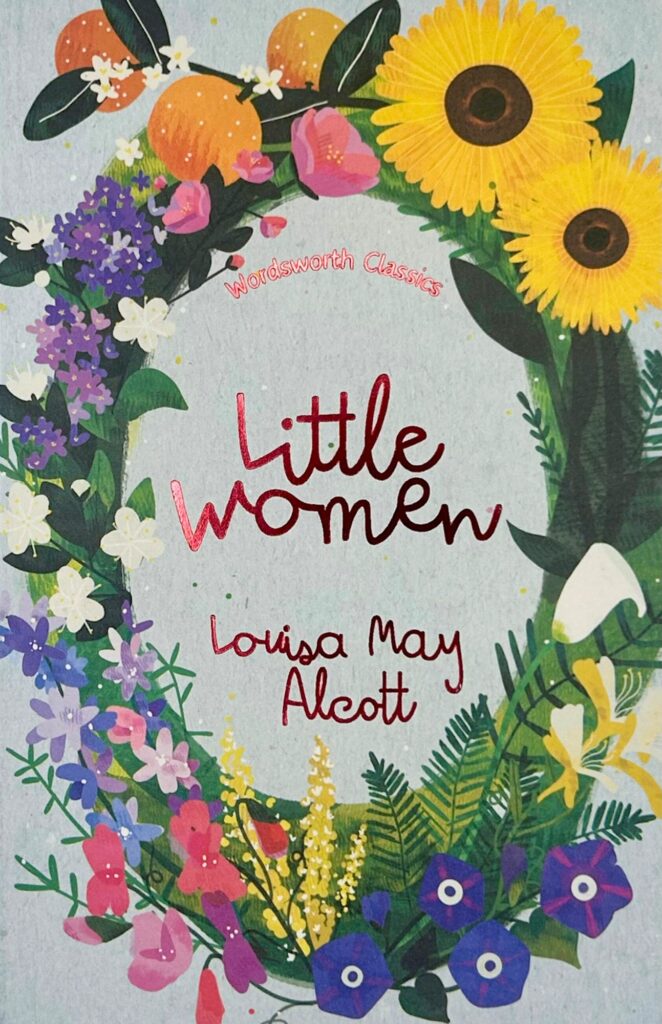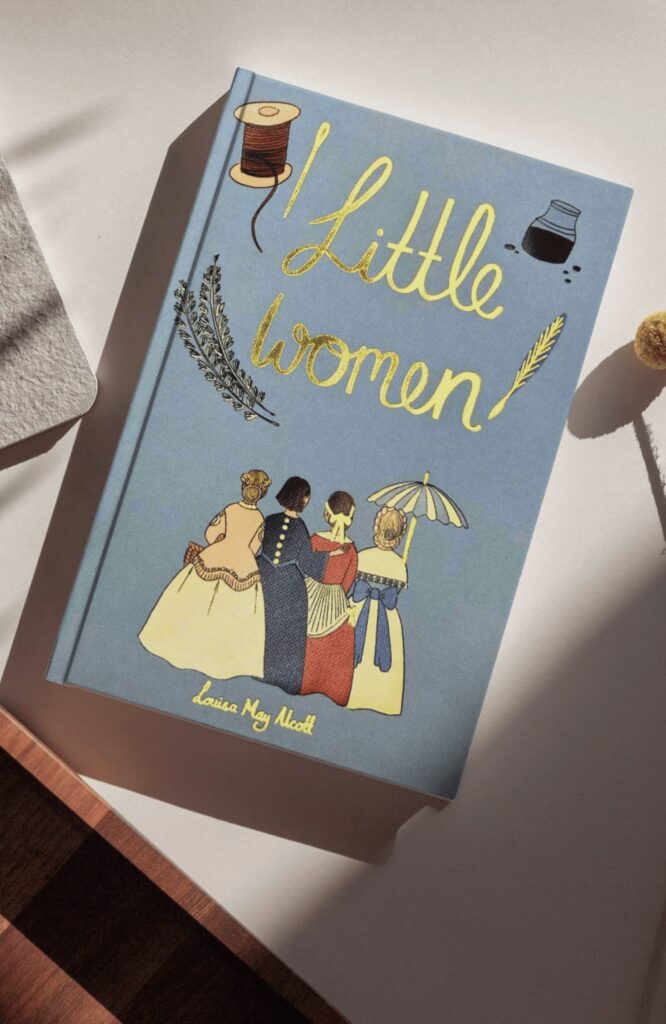
‘Little Women’ on the BBC
The pleasures and pains of TV adaptations: after ‘Howards End’, the BBC revisits ‘Little Women’. Stefania Ciocia reviews it for us.
Sometimes one of the best things to be said of an adaptation is that it gives its audience a perfect incentive to (re)engage with the original work on which it is based. I offer this as a statement of fact, and not as a roundabout way of damning by faint praise. Take the recent BBC version of E. M. Forster’s Howards End. When I first heard about it, I wondered whether we needed it at all, considering that the year just gone marked the twenty-fifth anniversary of the wonderful eponymous Merchant Ivory film.
Despite some lingering reservations, I’ll happily declare that the very same Howards End I couldn’t quite see the point of has been my television highlight of 2017. It shamed me into finally picking up a copy of the novel, to which – I had to concede – it is more faithful than the 1992 cinematic adaptation. I now know that my first, mediated encounter with Forster’s work had been marred by significant oversimplifications: on the big screen, a romanticized Leonard Bast (Samuel West) functions as the polar opposite to a Henry Wilcox (Anthony Hopkins) with no discernible redeeming features, while the endearingly eccentric, progressive Schlegel sisters (Emma Thompson’s Margaret and Helena Bonham Carter’s Helen) are rather too unmuddledly positioned on the side of the angels.
The recent TV version, instead, just like Forster, exposes the flaws, the hypocrisies and the pretensions of all the main characters, and generally fleshes them out. (To be fair, with four one-hour episodes the BBC has an extra 100 minutes or so to play with than Merchant Ivory).[1] The resulting added nuances clear up some mysteries (Hayley Atwell/Margaret Schlegel’s attraction to Matthew Macfadyen/Mr Wilcox makes perfect sense at last) while retaining others from the novel: what on earth would possess Helen (Philippa Coulthard) to want to sleep with Mr Bast (Joseph Quinn)? I’ve come to share Katherine Mansfield’s doubts about “whether Helen was got with child by Leonard or by his famously forgotten umbrella”, and not just because it’s a deliciously barbed comment.[2]
Implausibilities in the plot aside, one should be grateful to this most recent production for sparking a lively debate about whether social mobility is any less of a chimera today than it was a hundred years ago. Forster’s treatment of the Basts is not above reproach; still, the callous way in which they are chewed up and spat out of the story, even as we are told that Helen’s bast(ard) – Forster’s pun, not mine – son will inherit Howards End, is in itself a chilling reminder of how expendable some characters are, both narratively and socially.
From the perpetual topicality of class differences in British culture, the BBC’s next much publicised offering in classic period drama has gone for seasonal relevance: there were no less than two Christmas celebrations, and plenty of picturesque winter landscapes, in Little Women, broadcast in three one-hour episodes on 26, 27 and 28 December and still available on iPlayer. More than in the case of Howards End, one may legitimately wonder whether another adaptation of Louisa May Alcott’s text was really needed: the 1949 and 1994 film versions – boasting, respectively, Janet Leigh’s Meg and Elizabeth Taylor’s Amy, and Susan Sarandon’s Marmee and Winona Rider’s Jo – are almost as canonical as the original novel.
I have already written of Little Women as my favourite childhood read, [read it here]and it behoves me now to confess that up until last week I had somehow managed never to come in contact with a film, TV or theatrical production of this story. Professional production, I should say: as regular readers of this blog might remember, I was all too involved in fanciful, though minimalist and extemporized, performances of the March sisters’ adventures, featuring nine-year-old me as Jo and Beth, and my ten-year-old next-door neighbour as Meg and Amy. And that for me, as (I suspect) for many other die-hard devotees of the original, is the fundamental problem with visual adaptations of Alcott’s masterpiece: they can never really live up to the ones in our imagination, and in our memories of childhood reading sessions and histrionic games.
Let’s be honest: adapting Little Women has got to be a bit of a thankless task. Get it wrong, and you’ll cause a Twitter-storm: spare a thought here for Kathryn Newton, who is too old to play Amy, especially when she burns Jo’s manuscript within half hour from the beginning of the action. This “abominable” misdemeanour – and Marmee’s subsequent call for Jo to forgive her sister – becomes vaguely convincing only if the spiteful vandal is an impulsive twelve-year-old child. Ditto the whole obsession with pickled limes, though I did enjoy the inclusion of this minor episode in the programme. Still, I wish it had not been co-opted as an opportunity for Jo to give a talking to to mean Mr Davis. Little Women is forthright and didactic enough as it is, without the need for additional tirades. Against Mr Davis’s cruel pedagogical methods, Alcott’s Jo simply “delivered a letter from her mother; then collected Amy’s property, and departed, carefully scraping the mud from her boots on the doormat, as if she shook the dust of the place off her feet”.
What I wanted from this adaptation was extra metaphorical mud-scraping, and a bare minimum of haranguing, in the spirit that less is more. However, this strikes me as an impossible feat to achieve in translating this particular written text onto a visual medium. The moralistic sentimentality – necessary to be faithful to the novel – is much more digestible when one turns the pages of a well-thumbed copy of Little Women than when it is paraded on a screen (or stage) of any size, where it is inevitably magnified. I can’t be the only reader to have skimmed through and speed-read the overtly edifying passages in Little Women, ready to shrug them off and ascribe them to Alcott’s 19th-century sensitivity or to her need to cater to her intended readership. Alcott’s high-mindedness is harder to gloss over when it is given concrete shape by the excellent cast of this drama; it is also harder to swallow since we live at a time when we can’t even agree on basic facts, let alone on their moral import.
My point is that certain things are better left unsaid, but that visual media have a peculiar disadvantage on that score: the potential schmaltz in the representation of Marmee’s return home when Beth nearly dies from scarlet fever is hard to avoid, short of excising the scene – an unthinkable option. Alcott, in contrast, can circumvent excessive soppiness by demurring to dwell on the encounter: “I don’t think I have any words in which to tell the meeting of the mother and the daughters…”. There: job done.
Elsewhere, screenwriter Heidi Thomas goes out of her way to add drama and pathos even if the story already has them in spadefuls. The third and final episode opens with heavily pregnant Meg, of whom a worried Hannah remarks: “She’s a terrible big size for a terrible small girl, Mrs March”. Thomas’s TV credits include Call the Midwife, where this element of jeopardy – and the whole belaboured representation of the twins’ birth – properly belong. I wasn’t a fan either of Beth’s prolonged death-bed scene, or of Marmee’s tear-jerking farewell speech, and the earlier explicit, distraught articulation of her knowledge of the impending doom. Alcott handles Beth’s terminal condition with quiet restraint, insisting again that “[t]here was no need of any words” to disclose the dying girl’s secret “for Father and Mother saw plainly now what they had prayed to be saved from seeing”.
On the other hand, certain episodes gained from being acted out, and squeezed (or stretched) for all they were worth in feminist credentials. I’m thinking here of Professor Bhaer’s censorious outburst to Jo against the “Weekly Volcano”, unaware as he is that the young woman is a regular contributor to the morally poisonous publication. Understandably, Maya Hawke’s Jo gives as good as she gets at this juncture, pointing out to the sanctimonious professor that her sensational tales sell, and will help her raise the money to take Beth to the ocean. Jo’s defence of her writing is more forceful here than in the novel; in the next scene, I half-expected her to turn down Bhaer’s peace-offering of the complete works of Shakespeare, and tell him where to stick it. You’ve got to grant it to Bhaer, charming as he is in the BBC version: he remains a master of the carrot-and-stick method; if scolding Jo won’t do, then offering the Bard as a role model – complete with pep-talk – is an effective continuation of his preaching by subtler means.
No matter, though: Heidi Thomas is rightly determined to press home Jo’s need to earn a living. In a companion scene to the one with Professor Bhaer, she juxtaposes the young writer’s hard-nosed attitude against her father’s pious idealism: “This is a luxury I don’t think I have”, Jo says of her father’s twenty-year-long toil on his as yet unfinished magnus opus (a particular I don’t recall reading in the novel, by the way). This detail is a heaven-sent rebuttal of Mr March’s obdurate anti-materialist stance even in times of need (can’t he see that poor Beth would benefit from some sea air?), and a shocking measure of the fact that this pater familias is not much of a provider in the traditional sense of the word.
There are several other things that I enjoyed in Thomas’s adaptation because they cast new light on this old favourite of mine. When Emily Watson’s Marmee talks of having to conquer her anger, I believe her as I could never believe the original character. I have also miraculously laid to rest my childhood puzzlement and heartache in those moments when Jo turns Laurie down and – ugh! – Laurie goes on to marry Amy. Following Jo like a sad-eyed needy puppy, always loafing in the garret while the woman is trying to write (how annoying!), Jonah Hajer-King gives us a pitch-perfect immature scion-about-town, though he is much more lovable than in his previous turn as the equally feckless Paul Wilcox in Howards End. Amy is welcome to him. Like Jo, I’d pluck for Mark Stanley’s German Professor instead: he looks dapper, younger, less of a bargain-basement husband-material deal than Alcott’s perverse choice of partner for her heroine; the already mentioned hint of sanctimoniousness and not-unattractive gruff beard are entry-level Bhaer-like traits which his future good wife can undoubtedly live with.
My absolute favourite character – and I never thought it would come to this – is Thomas’s slightly tweaked version of Aunt March, whose rougher edges have been smoothed by a humorous script and Angela Lansbury’s mischievously cantankerous performance. The aged relative – she would have been perfectly at home in a Wodehouse novel – has some of the best lines in the mini-series: “We may resume the sermon. Meaning Mr Belsham’s…not mine”, she says after a lecture to Jo, blatantly pleased with her own joke.
Under a token veneer of harshness, quick wit and female solidarity pervade her exchange with Marmee, when the latter is forced to borrow money (these pesky practicalities again!) to go and tend to her ailing husband. The formidable Aunt infers from the scant details regarding Mr March’s condition that the telegram about his illness must have been written by a man. “I venture to suggest that we had best send a woman there so that we might ascertain the facts” is her logical conclusion, which masquerades her kindness as self-righteous pragmatism.
Though she may prefer Amy as a daily companion, deep-down Aunt March has more in common with Jo, who meanwhile is selling off her long hair (her “one beauty”, her horrified sisters concur) to come to her parents’ rescue. For all their verbal sparring, it stands to reason that Aunt March will leave Plumfield to Jo, and I bet she would thoroughly approve of her great-niece’s repurposing of the building as a school for boys. As to Jo’s abandoned artistic vocation in order to play Mother Bhaer to a very extended family, I take comfort from the final frame of the series: munching an apple with undiminished zest can only mean that this Jo will get back to her writing one day.
Stefania Ciocia is Reader in Modern and Contemporary Literature at Canterbury Christ Church University.
[1] The Merchant Ivory version will always have a special place in my heart. Back in Italy in the early 1990s, I had it on VHS cassette – remember those? – in English and with English subtitles, as an educational tool to improve my command of the language. I can trace back to this film the inclusion in my vocabulary of “diddums”, a word which I use sparingly, but always with great gusto, to this day.
[2] I am indebted for Mansfield’s quip to John Sutherland’s terrific ‘House of secrets: what to say about Howards End’, The Times, Saturday Review, 2 December 2017, pp.4-5.
To reflect the popularity of this title with readers of all ages, our edition of Little Women and Good Wives in our Children’s Classics series (9781853261169) will be joined by a new edition in our main classics series (9781840227536) which is published on 8 January 2018.
Books associated with this article

Little Women & Good Wives (Children’s)
Louisa May Alcott

Little Women & Good Wives
Louisa May Alcott

Little Women (Collector’s Edition)
Louisa May Alcott
